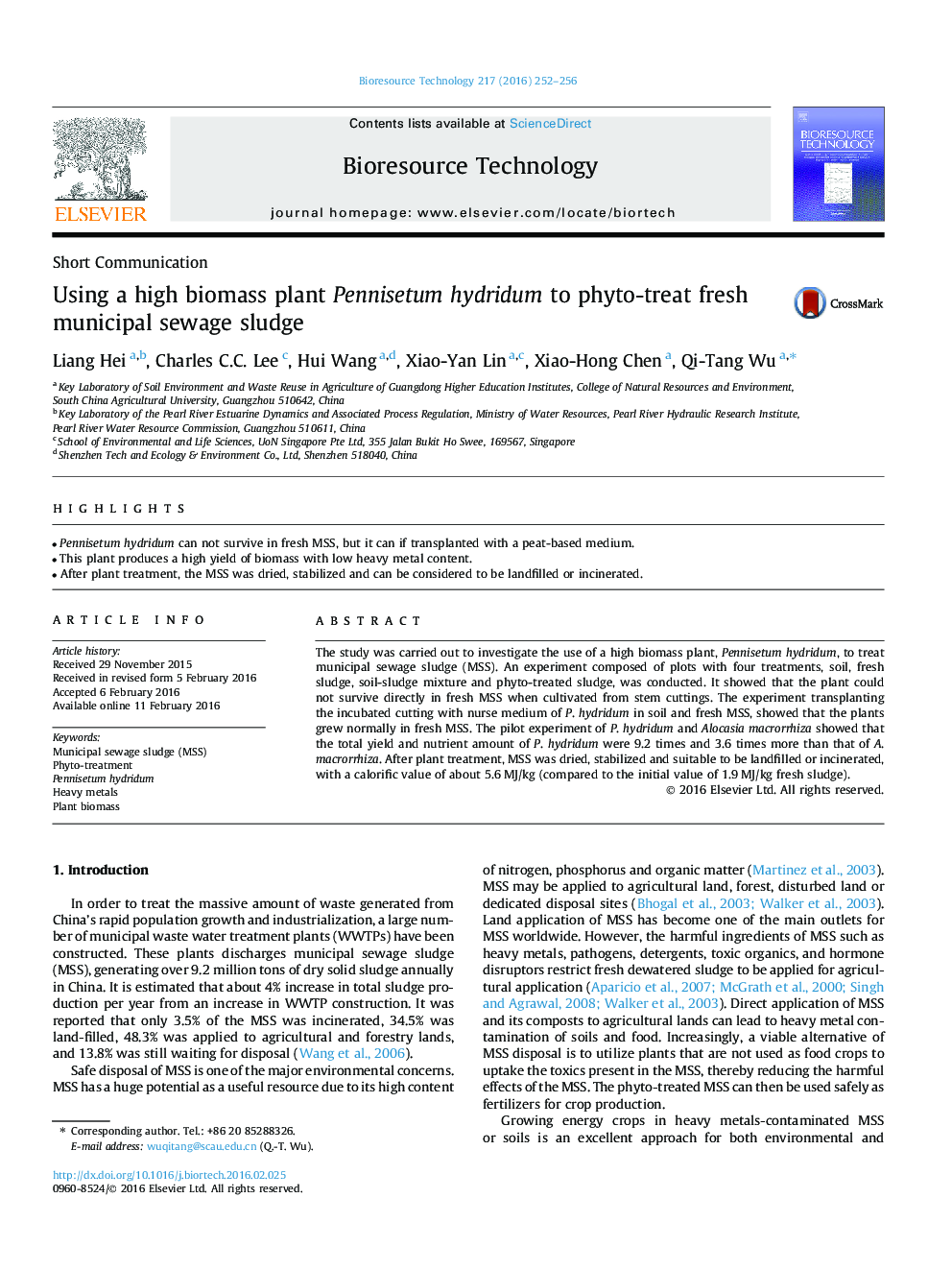| Article ID | Journal | Published Year | Pages | File Type |
|---|---|---|---|---|
| 679166 | Bioresource Technology | 2016 | 5 Pages |
•Pennisetum hydridum can not survive in fresh MSS, but it can if transplanted with a peat-based medium.•This plant produces a high yield of biomass with low heavy metal content.•After plant treatment, the MSS was dried, stabilized and can be considered to be landfilled or incinerated.
The study was carried out to investigate the use of a high biomass plant, Pennisetum hydridum, to treat municipal sewage sludge (MSS). An experiment composed of plots with four treatments, soil, fresh sludge, soil-sludge mixture and phyto-treated sludge, was conducted. It showed that the plant could not survive directly in fresh MSS when cultivated from stem cuttings. The experiment transplanting the incubated cutting with nurse medium of P. hydridum in soil and fresh MSS, showed that the plants grew normally in fresh MSS. The pilot experiment of P. hydridum and Alocasia macrorrhiza showed that the total yield and nutrient amount of P. hydridum were 9.2 times and 3.6 times more than that of A. macrorrhiza. After plant treatment, MSS was dried, stabilized and suitable to be landfilled or incinerated, with a calorific value of about 5.6 MJ/kg (compared to the initial value of 1.9 MJ/kg fresh sludge).
